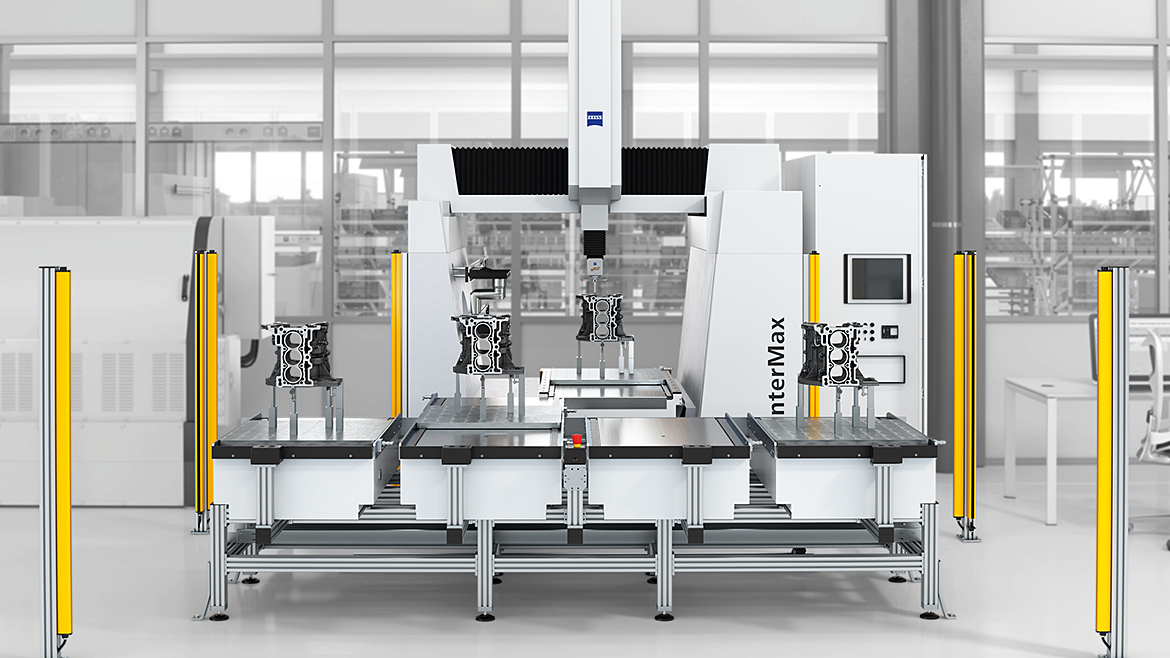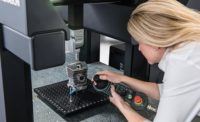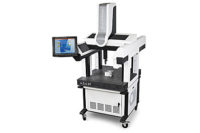Coordinate measuring machines (CMMs) are one of the most efficient methods of measuring and capturing dimensional data. Shop-floor CMMs deliver even more efficient dimensional data through their integration with manufacturing.
But how do you select the right shop-floor CMM for your production line? Making an informed decision means understanding application needs, what solutions can meet your needs and how to “future proof” your selection. Focus on these five critical areas to find the best shop-floor CMM for your facility.
1. Does It Have The Capability To Maximize Your Productivity?
Shop floors can rarely maintain a constant 68 F temperature, which affects measurement results. As well, machine tools fill the air with oil, dust and debris that can clog holes in air bearings, which eventually cause CMMs to stop working.
Shop-floor CMMs must have:
- Hardware designed for and rated to survive manufacturing environments.
- Sensors and stylus systems that meet your applications needs and can be changed quickly.
- Software that enables measurement programming that keeps pace with your manufacturing processes.
- Technical service that goes beyond installation to prevent downtime and create process efficiencies.
- Future proofing to ensure your solution meets your needs today and tomorrow.
2. Can It Turn Your Shop Into A “Connected Factory?”
Shop-floor CMMs need to seamlessly connect to automation equipment and other components of your manufacturing processes. This is often achieved through factory automation control software. Users can program the interface to drive automation equipment to do what is needed.
One example is with electric discharge machining (EDM) machines. The first method has the shop-floor CMM performing measurements while the EDM machine continues to mill parts. The second method connects the shop-floor CMM to a job manager software from several major EDM integrators so that the shop-floor CMM is communicating to several machines in an EDM manufacturing cell or plant. The second method connects the shop-floor CMM to a job manager software from several major EDM integrators so that the shop-floor CMM is communicating to several machines in an EDM manufacturing cell or plant.

All Images Source: ZEISS Industrial Quality Solutions
3. Does It Meet Your Application Needs?
Three facets are critical when evaluating a shop-floor CMM.
Software: Operators need specialized software to develop a measurement program that looks at specific dimensions and characteristics of the product you want measured. It is important for this software to be easy to use and user-independent.
Technical Service: You want vendors that can support you and supply you with technical service after the equipment purchase. The ability to access CMMs remotely has become a key aspect of the manufacturing world to maximize uptime.
Hardware: Your choice of hardware should depend on a CMM’s compatibility with third-party automation hardware. CMMs can increase productivity when they are part of a robotic cell with the machine tool itself or simply by having the right accessories and capabilities for your processes.

All Images Source: ZEISS Industrial Quality Solutions
4. Does It Integrate Easily Into Your Common Manufacturing Processes?
There are quality gates in every manufacturing process. Shop-floor CMMs can be inserted to ensure that processes are repeatable and give the results you need.
For example, the typical manufacturing process for small gears made of cast iron, steel or harder materials has three quality gates:
Gate #1 between the rough cut of the gear blank and cutting of the gear teeth — rough dimensions (outside diameter, thickness, center hole diameter)
Gate #2 between cutting the gear teeth and grinding — tooth profile and dimensions
Gate #3 between finishing and shipping the gears to customer — fine dimensions (gear teeth, outside diameter, center hole diameter)
Manufacturers with quality gates in place across their manufacturing processes reduce the possibility of product recalls or delivering poorly made products to customers.
5. Is It “Future-Proof?”
As your manufacturing processes change over time, you need your quality program to keep up. There are three main considerations.
Hardware: Systems should be able to operate in up to 40 C and have plug-and-play sensors that can be switched out, replaced and upgraded. You should also pick CMMs that have common controller hardware across all models.
Software: Common measurement software in all models ensures you’re not wasting money learning different programming languages. Common software enables data sharing between machine tool offsets and machine tools. You also want systems with the ability to download software updates and patches from a portal.
Technical Service: You need access to your machines’ data through dashboards and real-time monitoring of performance and room environment. This improves the long-term health of equipment through predictive maintenance recommendations. Systems that are supplemented by remote technical service and support guarantee your quality program is future-proofed.



